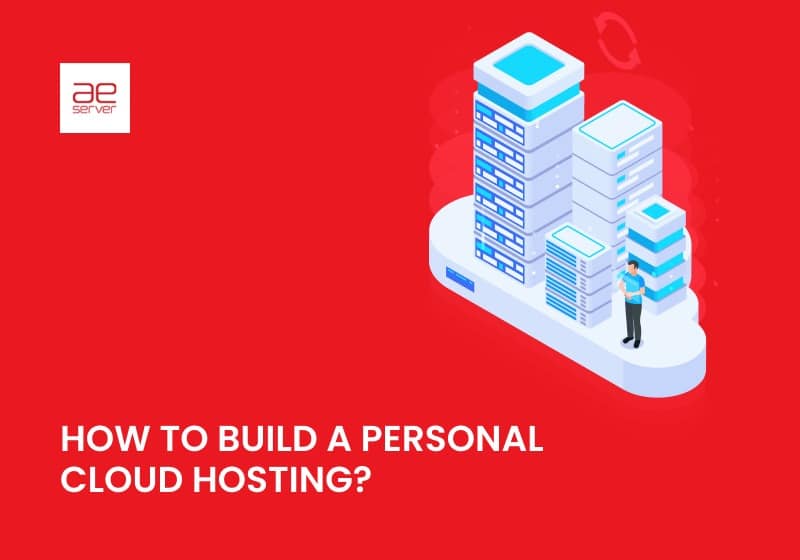
Shared vs. VPS Hosting: What to Choose for your Purpose?
Almost all companies have their representation on the Internet, that is, their website. Each site consists of a certain number of interconnected files and databases. You need to make these files publicly available for the global display of your place on the Internet. And that’s exactly what you need hosting for. It can be of different types. But the most basic of them is VPS hosting and shared hosting:
- The second one is the most trendy and effective choice. In it, one server fits many websites. Each site has limited resources, such as CPU time, RAM, and disk space.
- On the other hand, VPS hosting offers more flexibility and control. It is a virtual private server separated from other users on a physical server. It allows you to provide more resources and more stability for your site.
To understand what suits you better, you should study VPS hosting vs. shared hosting.
Importance of Choosing the Right Hosting for Your Purpose
There are many reasons why people start looking for quality hosting. If you are creating your applications or tests, this may be necessary. Also, it is helpful if you plan to open an online store or other e-commerce platform. That is, hosting is needed in the Internet sphere in which you create something unique.
It is imperative to choose the right hosting. Ultimately, this affects the performance and caliber of your site. Choosing the wrong option will lead to insufficient security. So, finding the perfect hosting for your needs is crucial for the following reasons:
- Site performance
Are you familiar with the situation when you visit a site, and it loads slowly? Most people leave this site immediately in such cases. Even a one-second delay can discourage others from opening a website. To avoid this, shared hosting or VPS hosting comes in handy. It helps keep your spot running fast and your users happy.
- Protection against cyber attacks
The Internet is a vast platform with many possibilities. But there are things to be wary of: cyber attacks. The probability of cyber attacks on your website is constantly increasing. And if you don’t have enough security, it can lead to the loss of your important data. Picking reliable hosting that protects against it is critical to keep you safe.
- Scalability and flexibility
Over time, you can expand your website and achieve greater success. You may need more resources or the ability to scale quickly to do this. Choosing functional hosting, such as VPS hosting, will allow you to increase resources quickly.
Whether creating a personal blog, business website, e-commerce, or software development, careful research and selection of the most suitable hosting provider will ensure your web project’s high performance, reliability, and security. It is important to understand your needs and pick the one that best suits your requirements. The right choice will contribute to the smooth functioning of your site and its success.

Shared Hosting
Would you like to have your own website but don’t know where to start? Discover shared hosting. It is the key to successfully launching and developing your web project. It gives you space to store all your files, photos, and content you want to show the world.
The history of shared hosting began in the 1990s. It was when the concept of virtual private servers was developed. This approach allowed the allocation of separate virtual environments on one physical server. It provided users with segregated resources and independence from other users. Later, shared hosting became popular with the development of virtualization and remote access technologies. It is a great option for many businesses looking for an affordable solution for their needs. Internet users still often compare shared hosting with VPS.
One of the great features of it is budgeting. And it’s the main difference between shared hosting and VPS hosting. Compared to other choices, it is pretty cheap. After all, shared hosting is like renting an apartment. You only pay for what you use. You can install apps, host content, and manage your website at no extra cost. It will make your business more cheap and efficient.
So, would you like to know how this cool hosting can ensure your website’s speed and flexibility? We have prepared all the essential details for you so that you can understand whether it is right for you.
Definition and explanation of shared hosting
Have you ever wondered how your data ends up on the Internet? It happens thanks to shared hosting. It works like a giant web resource where your website has its own home. And your files and data are stored on it. It means that your website is accessible to all your visitors from anywhere in the world.
When you build your site, all the files and other resources you upload are stored on a shared hosting server. In terms of power, it is a bit similar to VPS hosting. Shared hosting is an effective computer that works constantly. And it is accessible from anywhere on the Internet. How does it work? When someone types your website’s URL into their browser, the browser sends a request to the shared hosting server. It processes this request and sends a response. It includes your website in the visitor’s browser.
Here’s an interesting fact: the same server can host many different websites. It means that you are sharing the resources of this server with other shared hosting users. It allows you to reduce the cost of hosting. Because you don’t handle the total costs of hardware and server maintenance.
Advantages of shared hosting
Like anything else, shared hosting has its benefits. It is not surprising that users often compare shared hosting to VPS. After all, VPS is one of the best options. And if shared one stands with it in comparison, they are competitors. So, keep the top advantages of shared hosting:
| Advantages | Explanation |
| Ease of use | It is easy to use, even for beginners. There are intuitive control panels that make it easy to manage your website. |
| Scalability | It can be scalable. You can quickly increase or decrease your hosting plan to suit your needs. |
| Support | Many hosting providers support their users in case of any problems or questions. They can advise on setup, security, data backup, and recovery. |
| Backup and restore | Most providers backup your data. It makes it possible to restore critical information in case of unforeseen events. |
| Security | The providers of this hosting protect against hacker attacks and other threats. It is due to multiple websites sharing the same server. |
Limitations of shared hosting
The difference between shared hosting and VPS hosting is significant. But they have something in common. If we talk about shared hosting, it has some noteworthy restrictions that you should know:
| Limitations | Explanation |
| Software | Some hosting providers may restrict the use of some softwares. It may affect your website’s capabilities and functionality. |
| Email letters | Providers often place limits on the number of emails you can send. This is usually to avoid spam and save server resources. |
| Traffic | Some providers limit the amount of traffic just like VPS hosting does. It can cause your website to be unable to handle large amounts of traffic. |
| Server resources | Shared hosting means that you share server resources with other users. It may result in you being unable to use as many resources as you need. |
| Number of visitors | It has a boundary on the number of visitors that can view your website at one time. It is due to the limited resources allocated to each user on a shared server. |

VPS Hosting
Keep this type of hosting in mind if you want to have control, power, and flexibility over your web project. VPS is one of the most influential and flexible options allowing you to control your site more. VPS can be a great option if you’re looking for dependable and quick hosting that fits your needs.
A virtual private server (VPS) is a virtual machine that runs on a physical server. Each VPS has a unique operating system and set of resources. Furthermore, if you consider VPS hosting vs. shared hosting, then this option wins. VPS is, after all, a stand-alone service. It enables you to create the software of your choice.
One of the fascinating facts about VPS hosting is its flexibility. Would you like to customize your own server exactly how you need it? With VPS hosting, you get complete control over your environment. You can install and configure any software you need. And you can also choose the operating system that best suits your needs. That is, you become the architect of your server environment.
In general, VPS means a great option for companies and web developers. With greater control and flexibility, it ensures dependable and quick hosting. See the information below if you want to learn more.
Definition and explanation of VPS hosting
Have you ever wondered how VPS works? Why is it so crucial to your web project? Let’s look at exactly how it works and what it can offer you.
Generally, VPS means a virtual server that is independently configured. You can build the website you want with its help. After all, you receive a lot of functionality and personal control for this. With VPS hosting, you have your own space, guaranteeing high performance and security.
You get a higher level of dependability and security with VPS hosting. Each VPS runs independently of the others. Thus, issues that arise on one VPS don’t affect the others. The resources are entirely yours. You get significantly better performance than virtual hosting. After all, only you use the resources. And it is the main thing you should consider VPS hosting vs shared hosting. So, the bottom line is that VPS hosting is an excellent choice for web projects that need more control and reliability.
Advantages of VPS hosting
Many people ask if VPS is better than shared hosting. This is due to the fact that VPS is a little more popular. But this does not mean that it is better. After all, each of its advantages has its significance. Having analyzed the benefits of VPS, you can find out whether this option is better for you:
| Advantages | Explanation |
| Greater Control | The difference between shared hosting and VPS hosting is that the second one allows you to customize your server to fit your specific needs. You can customize your server and manage it in your own way. |
| Enhanced Security | It offers a higher level of security. This significantly reduces the risk of cyber threats. |
| Reliability | It ensures a high level of reliability for your website or applications. This stability guarantees a consistent user experience. And it minimizes the risk of performance issues. |
| Scalability | VPS hosting allows you to scale your resources as your needs evolve. This flexibility ensures that your hosting solution can adapt to your requirements. |
| Dedicated IP Address | It provides you with a dedicated IP address. It can improve your search engine rankings and prevent your emails from spam. |
Limitations of VPS hosting
When it comes to web hosting, one of the most popular options available is Virtual Private Server hosting. But, as with any hosting option, VPS has its limitations. In this blog, we will be taking a closer look at them:
| Limitations | Explanation |
| Resources | It has limited resources. It means that if your website experiences a sudden increase in traffic, it can’t handle the load. |
| Higher Cost | Is VPS better than shared hosting? In price, it tends to be more expensive due to the dedicated resources. |
| Maintenance | With VPS hosting, you’re responsible for maintaining your server’s software. It can be challenging if you don’t have the necessary skills. |
| No Physical Access | With it, you don’t have physical access to your server. If there’s a hardware issue, you’ll need to contact your hosting provider. |
| Technical Support Dependency | With VPS hosting, you may encounter technical issues. Or you can face server-related problems that need help from technical support. |

Factors to Consider When Choosing Hosting for Your Purpose
Before making any significant selection, you should consider all factors. And this also applies to the choice of hosting. Since it determines the success of your online presence, it is crucial to make the right choice.
Considering shared hosting vs. VPS take into account all the nuances. Check your budget options. And also think about your wishes in this regard. You should know which hosting features you need. Thanks to their definition, you make a choice faster.
Besides, there are many other factors before choosing VPS hosting vs. shared hosting. It includes control, security, and so on. And it is imperative to learn about it before deciding on a hosting. After all, it affects the further development of your site. So, here are more details about the factors:
Security and control
Do you want to ensure that your website or application is secure? Look for a hosting provider that offers security features. It includes firewalls, malware scanning, and regular backups. Thanks to this, you can pick quality hosting with the protection of your information.
Scalability and flexibility
Extra important considerations include scalability and flexibility. You might need to scale up your resources as your website gets bigger. To easily add resources as needed, look for a scalable hosting provider. You can consider VPS hosting vs. shared hosting. They are among the best in this type of functionality.
Cost considerations
When choosing a hosting provider, price is a constant factor. And this is why there is a difference between shared hosting and VPS hosting. One is more expensive, and the other is cheaper. For the features and resources you need, look for a reasonably priced provider. Also, consider the size of your site. If you plan to expand it, it is better to overpay and choose a more expensive hosting.
Conclusion
The decision on hosting choices depends on your unique requirements. Shared hosting is the best option if you have a small website with low traffic. But, if you have a larger website with complex conditions, VPS is better. Take the time to check your needs, compare the features and benefits of each option. Assessing these factors will help you make an informed decision.
Frequently Asked Question
-
What is VPS hosting?
VPS hosting is a versatile hosting solution. It provides users with a virtual server environment isolated from other users.
-
What are the limitations of shared hosting?
Shared hosting may limit the amount of storage space available for your website. If your website requires large storage for files, it can’t provide enough space.
-
What is shared hosting?
It is a cost-effective hosting option suitable for small to medium-sized websites. It provides a user-friendly interface and handles server maintenance and management tasks.
-
How do I choose between shared and VPS hosting?
Consider the level of control you need over your hosting environment. Shared hosting offers a hands-off approach. VPS hosting, but provides root access and administrative management.



